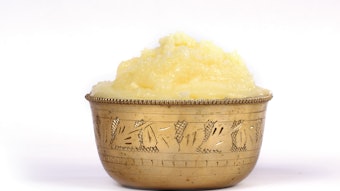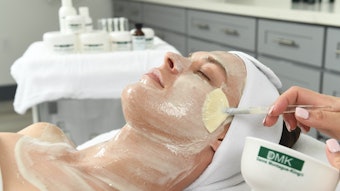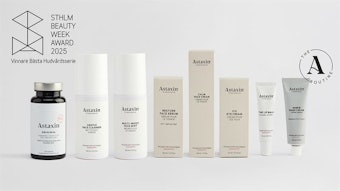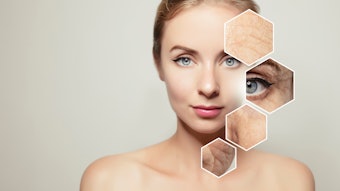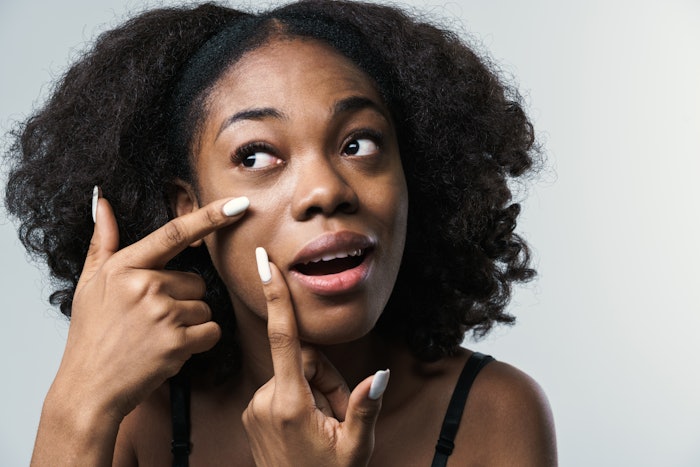
"The next chapter of wellness will be mind-body beauty, where mental well-being and physical appearance are interconnected," Mintel recently declared in its 2024 beauty trend forecast. A new report from Topicals points out just how critical this physical-mental connection is, particularly for people of color.
Topicals' report comprises research led by VP of product development Tamar Kamen and Martina M. Cartwright , Ph.D., RDN (registered dietitian nutritionist) of The University of Arizona School of Nutritional Science and Wellness.
The study, conducted in August 2022 via a web-based survey, featured 775 participants with 64.6% (n=501) identifying as having skin of color. The majority of respondents were female (94.2%) and Black/African American (76.6%), with the largest age group being 18-24 years (48.9%).
Of those respondents suffering from acne, more than 70% had received negative comments about their condition/appearance. And 40% had been suffering the condition for more than 10 years. Furthermore, nearly 74% suffered from post-inflammatory hyperpigmentation.
Of those suffering dark spots, nearly 50% had received negative comments from "someone close to them" while nearly the same amount of respondents felt depressed due to the presence of dark spots.
Those suffering atopic dermatitis/eczema reported missing social activities due to their condition (nearly 58% of respondents), while about 1/3 had edited images of themselves to hide their condition.
Overall, 85.2% of participants rated their skin conditions as moderately to extremely bothersome, with 57.4% stating that their skin condition(s) affected their mental health.
The results point to a continuing need for effective solutions (products and ingredients) for skin of color as well as a greater focus on the mental health impacts of long-running issues.
